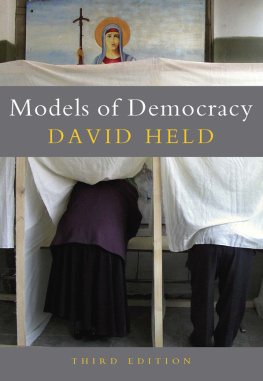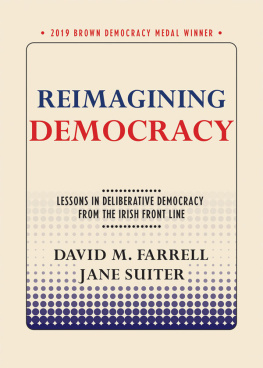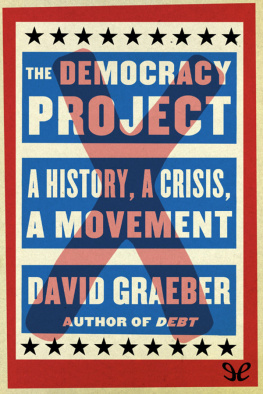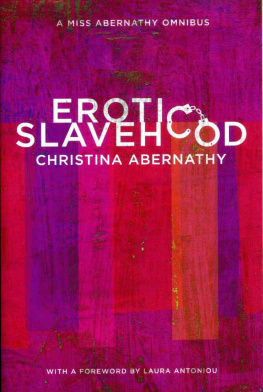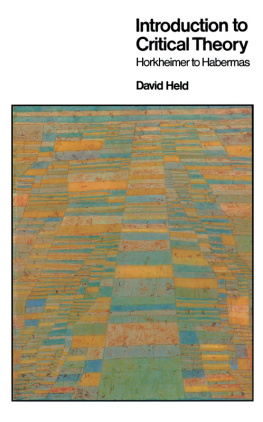Held David - Models of Democracy
Here you can read online Held David - Models of Democracy full text of the book (entire story) in english for free. Download pdf and epub, get meaning, cover and reviews about this ebook. year: 2016, publisher: Polity Press, genre: Politics. Description of the work, (preface) as well as reviews are available. Best literature library LitArk.com created for fans of good reading and offers a wide selection of genres:
Romance novel
Science fiction
Adventure
Detective
Science
History
Home and family
Prose
Art
Politics
Computer
Non-fiction
Religion
Business
Children
Humor
Choose a favorite category and find really read worthwhile books. Enjoy immersion in the world of imagination, feel the emotions of the characters or learn something new for yourself, make an fascinating discovery.
- Book:Models of Democracy
- Author:
- Publisher:Polity Press
- Genre:
- Year:2016
- Rating:5 / 5
- Favourites:Add to favourites
- Your mark:
- 100
- 1
- 2
- 3
- 4
- 5
Models of Democracy: summary, description and annotation
We offer to read an annotation, description, summary or preface (depends on what the author of the book "Models of Democracy" wrote himself). If you haven't found the necessary information about the book — write in the comments, we will try to find it.
Models of Democracy — read online for free the complete book (whole text) full work
Below is the text of the book, divided by pages. System saving the place of the last page read, allows you to conveniently read the book "Models of Democracy" online for free, without having to search again every time where you left off. Put a bookmark, and you can go to the page where you finished reading at any time.
Font size:
Interval:
Bookmark:

For Peter
Third Edition
DAVID HELD

Copyright David Held 2006
The right of David Held to be identified as Author of this Work has been asserted in accordance with the Copyright, Designs and Patents Act 1988.
This edition first published in 2006 by Polity Press
Polity Press
65 Bridge Street
Cambridge CB2 1UR, UK
Polity Press
350 Main Street
Malden, MA 02148, USA
All rights reserved. Except for the quotation of short passages for the purpose of criticism and review, no part of this publication may be reproduced, stored in a retrieval system, or transmitted, in any form or by any means, electronic, mechanical, photocopying, recording or otherwise, without the prior permission of the publisher.
ISBN 10: 0745631460
ISBN 10: 0745631479 (pb)
ISBN 13: 9780745631462
ISBN 13: 9780745631479
A CIP catalogue record for this book is available from the British Library.
Every effort has been made to trace all copyright holders, but if any have been inadvertently overlooked, the publishers will be pleased to include any necessary credits in any subsequent reprint or edition.
For further information on Polity, visit our website: www.polity.co.uk
To see more about this book, go to
www.polity.co.uk/modelsofdemocracy
Figures
Tables
Although it is easy to overgeneralize from one time period and from the culture of ones homeland, the development of the third edition of Models of Democracy is written in unsettling times. The events of 9/11 and the subsequent wars in Afghanistan (2002) and Iraq (2003) have created a ripple of change across the globe. Democracy, which seemed relatively untroubled in the 1990s, is experiencing intense pressures, from within and without. Security challenges, the war on terror, the attempt to impose regime change on Iraq and to transform other Middle Eastern countries have been accompanied by a widespread sense of unease about whether democracies can deliver security to their citizens, whether they can sustain prosperity in tumultuous times and whether they embed ideals that can be defended adequately against, on the one hand, widespread despondency and apathy within and, on the other hand, fierce opponents, who do not hesitate to use indiscriminate violence, from without. The rise of fundamentalist elements in Islam, alongside the development of Christian and Jewish fundamentalist groupings elsewhere, raise questions about the legitimacy of contemporary political institutions, the separation of church and state, and the very possibility of democracy in the face of challenges to its underlying conception of human beings as free and equal, as active moral agents, with capacities for self-determination and political choice. There is a marked risk that in Western democracy a concern with security above all else will undo some of the important achievements of democracy and certain of the rights and liberties it presupposes. And there is a risk that cultures and religious forces that oppose the separation of politics and religion, state and civil society, will see democracy as one of their enemies.
Elsewhere, most recently in Global Covenant (2004), I have analysed some of these trends and reactions. In Models of Democracy my aim is to clarify why democracy is so important in human affairs, why it is so contested and why, despite its vulnerabilities, it remains the best of all possible governing arrangements. Democracy is not a panacea for all human problems, but it offers the most compelling principle of legitimacy the consent of the people as the basis of political order. It is important to understand this principle and the many debates it has given rise to, if an attractive and defensible conception of democracy is to be promulgated in the century ahead.
Given the difficulties of the present period it is easy to forget that, if there was ever an age of democracy, it is the present one. State socialism, which appeared so entrenched just a few decades ago, has crumbled in Central and Eastern Europe. In many of its essentials, democracy appears not only quite secure in the West but also widely adopted in principle beyond the West as a suitable model of government. Throughout the worlds major regions there has been a consolidation of democratic processes and procedures. In the mid-1970s, over two-thirds of all states could reasonably be called authoritarian. This percentage has fallen dramatically; less than a third of all states are now authoritarian, and the number of democracies has grown. Democracy has become the leading standard of political legitimacy in the current era.
The tale of democracy from antiquity to the present seems, therefore, to be a relatively happy one. In more and more countries citizen-voters are, in principle, able to hold public decision-makers to account, while the decision-makers themselves represent the interests of their constituents the people in a delimited territory. However, the tale of democracy does not conclude with such developments. Although the victory of democratic movements across Central and Eastern Europe was of great moment, as was the transformation of political regimes in other places like South Africa, these events have left unresolved many important questions of democratic thought and practice. Democracy, as an idea and as a political reality, is fundamentally contested. Not only is the history of democracy marked by conflicting interpretations, but also ancient and modern notions intermingle to produce ambiguous and inconsistent accounts of the key terms of democracy, among them the proper meaning of political participation, the connotation of representation, the scope of citizens capacities to choose freely among political alternatives, and the nature of membership in a democratic community.
These are significant and pressing matters, and the stock of a great deal of contemporary political debate. But even these important concerns by no means fully define the current agenda of democratic thought and practice. For any engagement with the contemporary meaning of democracy has to examine additional questions questions not only about the internal or domestic character of democracy, but also about its external qualities and consequences. This is so because one of the most conspicuous features of politics in the new millennium is the emergence of issues which transcend national democratic frontiers. Processes of economic globalization, the problem of the environment and the protection of the rights of minorities are increasingly matters for the international community as a whole. The nature and limits of national democracies have to be reconsidered in relation to processes of environmental, social and economic globalization; that is, in relation to shifts in the transcontinental or inter-regional scale of human social organization and of the exercise of social power.
Of course, there is nothing new about the emergence of global problems. Although their importance has grown considerably, many have existed for decades, some for centuries. But now that the old confrontation between East and West has ended, regional and global problems such as the spread of AIDS, the debt burden of the developing world, the flow of financial resources which escape national jurisdiction, the drugs trade, international crime and terrorism have an urgent place on the international political agenda. None the less, profound ambiguity still reigns as to where, how and according to what criteria decisions about these matters can be taken.
Next pageFont size:
Interval:
Bookmark:
Similar books «Models of Democracy»
Look at similar books to Models of Democracy. We have selected literature similar in name and meaning in the hope of providing readers with more options to find new, interesting, not yet read works.
Discussion, reviews of the book Models of Democracy and just readers' own opinions. Leave your comments, write what you think about the work, its meaning or the main characters. Specify what exactly you liked and what you didn't like, and why you think so.

